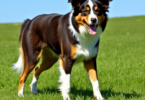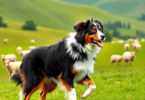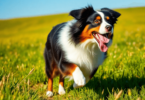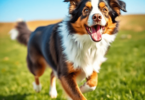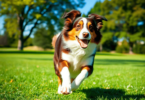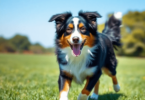Introduction
The Akbash dog is a majestic breed from Turkey, known for its historical role as a livestock guardian. With their striking white coats and loyal nature, these dogs have been protecting flocks for centuries. Their unique combination of strength, intelligence, and independence makes them not only excellent guardians but also beloved family pets.
Understanding Akbash dog health is crucial for ensuring a long and happy life. Like all breeds, Akbash dogs can face specific health issues that may impact their well-being. By being aware of these potential problems, owners can take proactive steps to promote longevity and quality of life.
This comprehensive guide covers:
- Common Akbash dog health problems
- The average lifespan of Akbash dogs
- Essential care practices to enhance their overall wellness
With this knowledge, you will be better equipped to provide the love and attention your Akbash deserves.
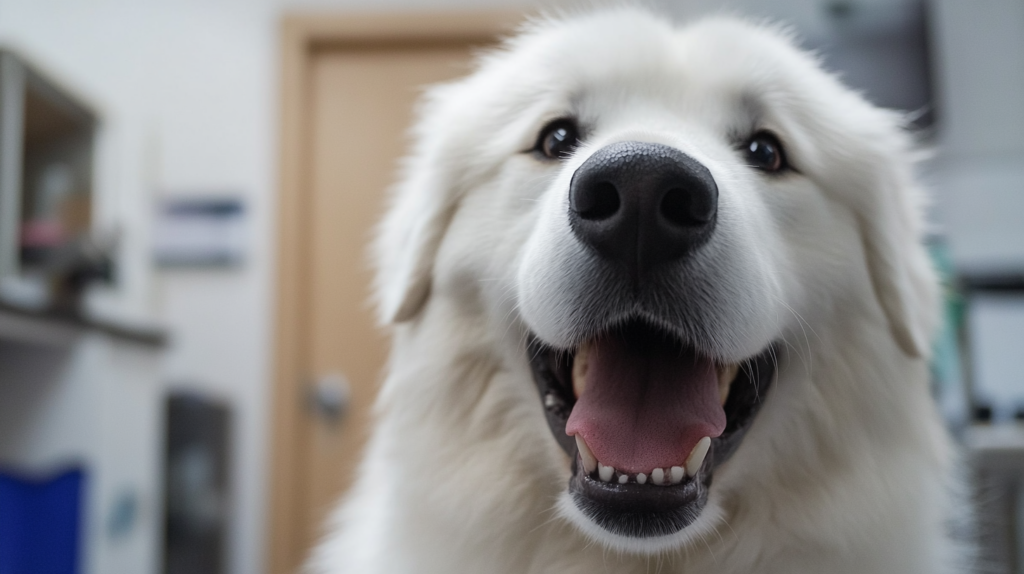
Understanding the Health of Akbash Dogs
Akbash dogs, with their majestic stature and loyal demeanor, require a keen understanding of their health needs. Responsible ownership involves being aware of potential Akbash dog health issues that could affect their well-being.
General Health Considerations
As an Akbash owner, there are several general health considerations you should keep in mind:
- Diet and Nutrition: Proper nutrition is vital for maintaining a healthy weight and supporting overall well-being. A balanced diet tailored to their size and activity level helps prevent obesity-related issues.
- Exercise Requirements: Regular physical activity, around 30 minutes to an hour daily, keeps these active guardians physically fit and mentally stimulated.
- Grooming Needs: The Akbash’s medium to shaggy double coat sheds seasonally. Regular grooming sessions help manage shedding and keep their skin healthy.
Common Genetic Health Issues
Understanding genetic health problems in dogs is crucial for any Akbash owner. Some common conditions seen in large breeds like the Akbash include:
- Hip Dysplasia: A hereditary condition where the hip joint doesn’t fit into the hip socket properly. This can lead to arthritis and discomfort.
- Symptoms may include difficulty rising, decreased activity, or favoring one leg.
- Regular veterinary check-ups can help with early detection through screening.
- Hypothyroidism: An underactive thyroid gland can lead to various health issues including weight gain, lethargy, and skin problems.
- Owners should watch for signs like unusual weight changes or dull fur.
- Blood tests are often used for diagnosis.
- Elbow Dysplasia: Similar to hip dysplasia, this condition affects the elbow joint, causing pain and mobility issues.
Being proactive about Akbash health screening allows owners to catch these genetic conditions early on. Regular veterinary visits are essential for monitoring health and ensuring a long, happy life for your furry friend. With awareness of these factors, you can take steps to promote a robust and thriving Akbash dog!
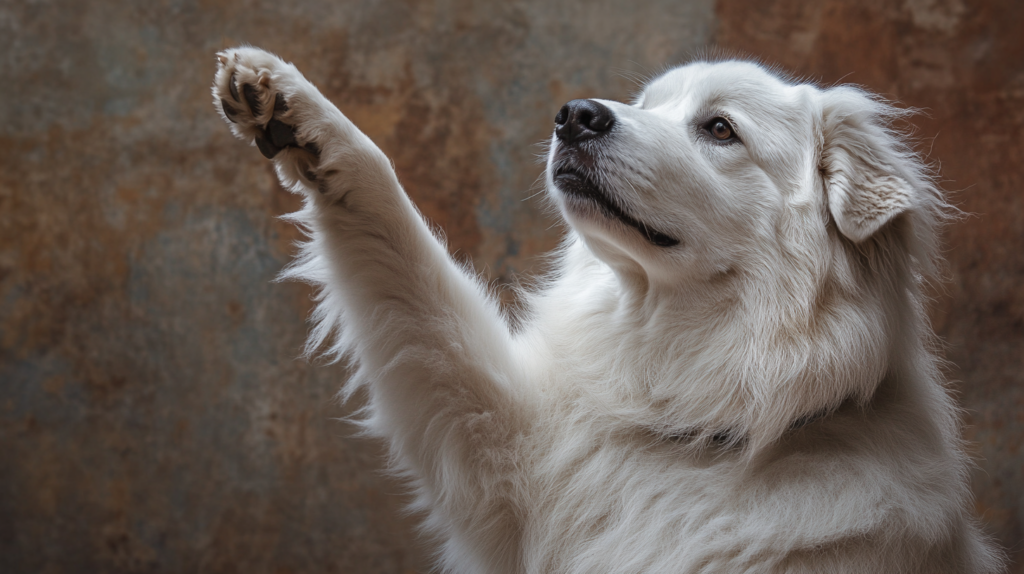
Lifespan and Factors Influencing It
The Akbash dog lifespan typically ranges from 10 to 12 years. This impressive longevity is enhanced by a combination of genetics, proper care, and an active lifestyle.
Factors Influencing Lifespan
- Genetics: Like all breeds, the genetic makeup of Akbash dogs can predispose them to certain health issues. Responsible breeding practices can lead to healthier pups.
- Nutrition: A balanced diet tailored to their size and activity level ensures that Akbash dogs receive the necessary nutrients for optimal health.
- Exercise: Regular physical activity, ideally between 30 minutes to an hour daily, helps maintain a healthy weight and overall fitness, critical for preventing obesity-related diseases.
- Veterinary Care: Routine check-ups allow for early detection of potential health problems, making it easier to manage any issues before they escalate.
- Living Environment: A secure and stimulating environment contributes significantly to their mental well-being, reducing stress and related health concerns.
By understanding these influences, Akbash owners can take proactive steps toward ensuring their furry companions live a long, healthy life filled with adventures and joy.
Common Health Problems in Akbash Dogs and Their Management
1. Hip Dysplasia: A Joint Problem to Watch Out For
Hip dysplasia is a common concern for large breeds like the Akbash. This genetic condition occurs when the hip joint does not fit properly into the hip socket, leading to discomfort and mobility issues. The loose fit can cause wear and tear on the joint, resulting in arthritis over time. Understanding this condition is crucial for maintaining Akbash Dog Health.
Recognizing Symptoms Early On
Identifying hip dysplasia in Akbash dogs early can make a significant difference in their comfort and mobility. Look out for:
- Difficulty standing up after lying down
- Limping or favoring one leg
- Reduced activity level or reluctance to engage in play
- Swaying gait, especially when running
- Pain or sensitivity around the hip area
If you notice any of these signs, seeking veterinary diagnosis is essential. Your veterinarian may recommend X-rays to assess the condition of the hips accurately.
Treatment Options Available
Should your furry friend be diagnosed with hip dysplasia, don’t fret! Various treatment options are available, tailored to your dog’s specific needs:
- Weight Management: Keeping your Akbash at a healthy weight reduces stress on their joints.
- Physical Therapy: Exercises designed by a professional can help strengthen surrounding muscles and improve flexibility.
- Medications: Non-steroidal anti-inflammatory drugs (NSAIDs) can manage pain and inflammation.
- Surgery: In severe cases, surgical interventions such as hip replacement may be necessary.
Early diagnosis and intervention can lead to a much higher quality of life for your dog.
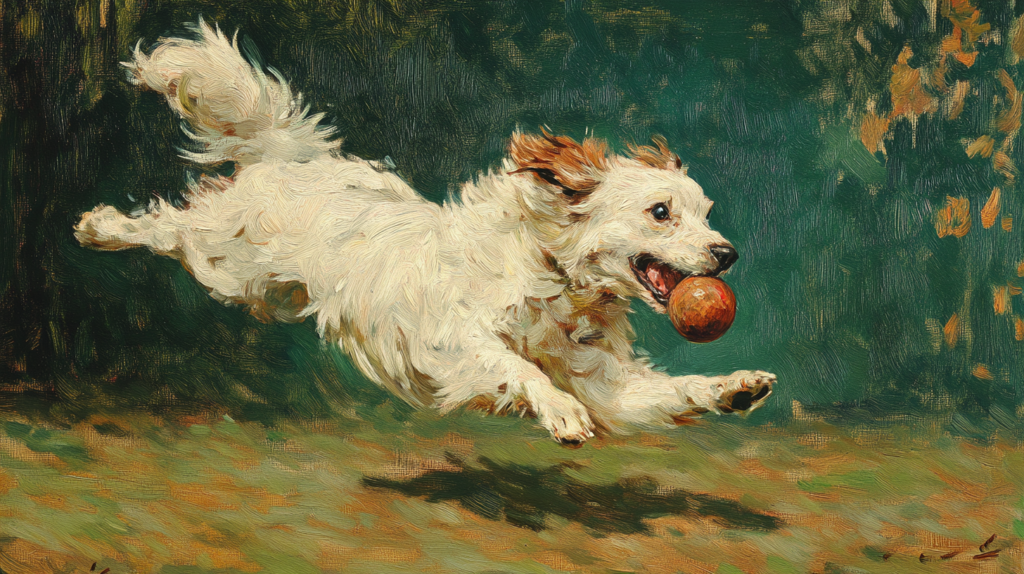
Preventive Measures
While genetics play a role in hip dysplasia, certain preventive measures can help mitigate risks for your Akbash:
- Regular Vet Check-ups: Routine examinations allow for early detection and monitoring of potential issues.
- Proper Nutrition: A balanced diet tailored to their size and activity level supports healthy growth and development.
- Controlled Exercise: Engaging your dog in low-impact activities reduces strain on developing joints while keeping them active.
Understanding hip dysplasia in Akbash dogs is vital for promoting longevity and well-being. Armed with knowledge about symptoms, treatments, and prevention strategies, you can ensure that your loyal companion remains sprightly and happy throughout their life.
2. Hypothyroidism: Understanding This Hormonal Imbalance
Hypothyroidism in Akbash dogs occurs when the thyroid gland doesn’t produce enough hormones, which affects various bodily functions. This condition can lead to a range of health issues that may impact an Akbash dog’s quality of life.
Understanding the Impact:
- Weight gain
- Lethargy
- Skin problems (dryness, hair loss)
- Cold intolerance
Recognizing early signs is crucial for effective management. Owners should be vigilant about the following symptoms:
- Weight changes: Unexplained weight gain despite normal eating habits.
- Behavioral shifts: Increased lethargy or decreased activity levels.
- Skin and coat issues: Noticeable changes in fur texture or appearance.
Early diagnosis through a veterinary examination is key. Blood tests can assess hormone levels, leading to appropriate treatment options such as:
- Daily medication to replace missing hormones, typically in pill form.
- Regular monitoring to adjust medication dosages as needed.
In addition to hypothyroidism, Akbash dogs can face other significant health concerns like hip dysplasia and bloat (gastric torsion). Keeping an eye on these conditions helps ensure your furry friend remains healthy and happy.
By understanding the signs of hypothyroidism and maintaining regular veterinary check-ups, owners can significantly improve their Akbash dog’s health journey.
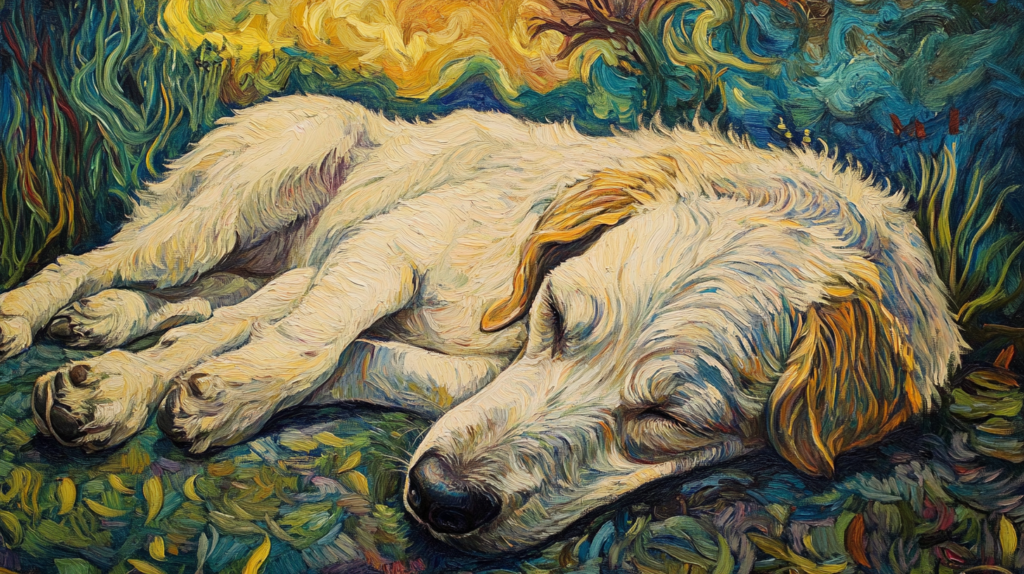
3. Bloat (Gastric Torsion): A Life-Threatening Emergency
Bloat, medically known as gastric torsion or torsion volvulus, poses a significant risk to large breeds like the Akbash. This condition occurs when the stomach fills with gas and twists on itself, leading to severe complications if not addressed swiftly. Understanding the dangers associated with bloat is crucial for every Akbash owner.
Risks Associated with Bloat
- Rapid onset: Bloat can develop quickly and turn fatal within hours.
- Large breed vulnerability: Akbash dogs are particularly susceptible due to their size and deep chests.
Symptoms That Require Immediate Attention
Recognizing the signs of bloat can save your dog’s life. Watch for:
- Distended abdomen: A swollen or hard belly that appears larger than usual.
- Restlessness: Inability to settle down, pacing, or seeking unusual positions.
- Unproductive retching: Attempting to vomit without producing anything.
- Excessive drooling: Increased saliva production can indicate distress.
If your Akbash exhibits any of these symptoms, it’s essential to seek veterinary care immediately. Early intervention can be the difference between life and death.
Bloat Prevention in Akbash Dogs
Preventive measures can significantly reduce the risk of bloat in Akbash dogs:
- Feeding smaller meals: Opt for multiple smaller portions throughout the day instead of one large meal.
- Slow feeding bowls: Use specialized bowls designed to slow down eating.
- Limit vigorous exercise before and after meals: Allow time for digestion before engaging in physical activity.
Awareness of potential health issues such as hip dysplasia and hypothyroidism in Akbash dogs enhances your ability to provide comprehensive care. Keeping an eye on bloat symptoms is vital for maintaining your pet’s quality of life and ensuring their well-being.
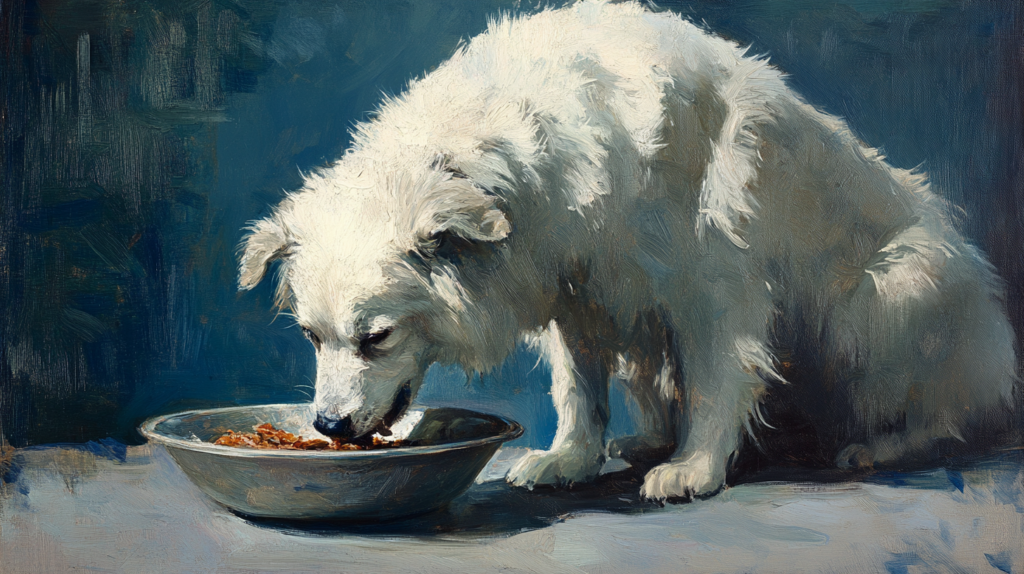
4. Other Health Concerns to Keep on Your Radar
While we’ve explored some major health issues like hip dysplasia, hypothyroidism, and the risks of bloat, it’s important to remain vigilant about other potential health concerns that can affect Akbash dogs. Here are a few additional issues to be aware of:
- Eye Problems: Akbash dogs can be prone to various eye conditions, including cataracts and progressive retinal atrophy (PRA). These issues may not be immediately apparent but can lead to vision impairment or blindness over time. Regular check-ups with a veterinarian can help catch these problems early.
- Umbilical Hernias: This condition occurs when part of the intestine protrudes through an opening in the abdominal muscles near the belly button. While umbilical hernias can sometimes resolve on their own, they might require surgical intervention if they become larger or cause discomfort. Monitoring your Akbash dog for any unusual bulges in the abdominal area is crucial.
Recognizing these health issues ensures better management of your Akbash dog’s overall well-being. Keeping an eye out for symptoms and seeking veterinary advice promptly can significantly impact their quality of life. This proactive approach complements the awareness needed for more commonly discussed conditions such as hip dysplasia in Akbash dogs, which affects their mobility, or hypothyroidism in Akbash dogs, which impacts energy levels and weight.
Stay informed, stay prepared, and keep those tails wagging!
Exercise and Its Impact on Health
Exercise is essential for keeping Akbash dogs healthy and happy. These magnificent dogs need regular physical activity to stay fit, prevent weight gain, build strong muscles, and maintain a healthy heart.
Recommended Exercise Routine
- Daily Walks: Aim for at least 30 minutes to an hour of brisk walking or jogging. This not only keeps them fit but also provides mental stimulation.
- Playtime: Engaging in interactive games like fetch or tug-of-war can enhance their agility and keep boredom at bay.
- Socialization: Introduce your Akbash to different environments and other dogs. This fosters good behavior and reduces anxiety when encountering new situations.
Benefits of Regular Exercise
- Weight Management: Helps combat obesity, a common issue in larger breeds.
- Behavioral Improvement: Reduces destructive tendencies often seen in bored dogs.
- Mental Stimulation: Challenges their minds, keeping them sharp and alert.
A well-exercised Akbash is likely to be happier and more balanced, contributing positively to their overall health. Balancing their natural guarding instincts with structured activities can lead to a fulfilling life for these noble companions.
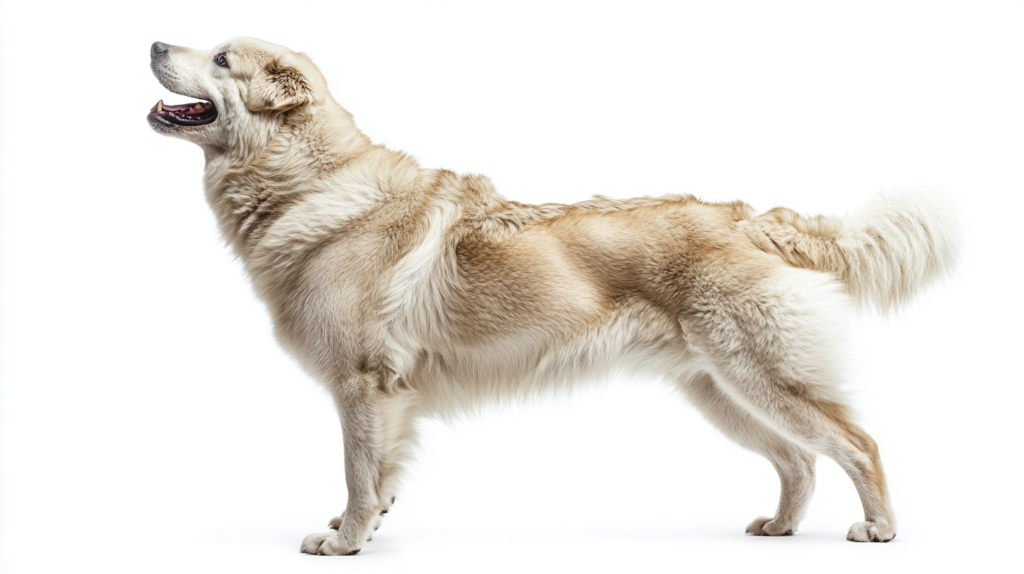
Health Testing and Screening for Early Detection
Ensuring your Akbash dog enjoys a long, healthy life hinges on proactive health management. Regular veterinary check-ups become essential in this journey. Here’s why:
- Early Detection: Many health issues, including hip dysplasia and hypothyroidism, often develop silently. Routine screenings allow for early detection, enabling timely intervention.
- Vaccination Updates: Keeping vaccinations current is vital to protect against infectious diseases that can compromise your dog’s health.
- Weight Monitoring: Akbash dogs are large breeds prone to weight-related issues. Regular vet visits help monitor their weight and adjust diet and exercise as needed.
- Dental Care: Oral health is crucial. Your veterinarian can provide advice on dental hygiene, which can prevent more significant health complications down the line.
- Tailored Health Plans: Every Akbash dog is unique. Regular check-ups allow vets to customize health plans based on age, lifestyle, and breed-specific concerns.
Embracing these routine veterinary visits fosters a partnership in your dog’s healthcare journey. This commitment not only enhances their quality of life but also aids in maintaining their protective and loyal nature as they age gracefully.
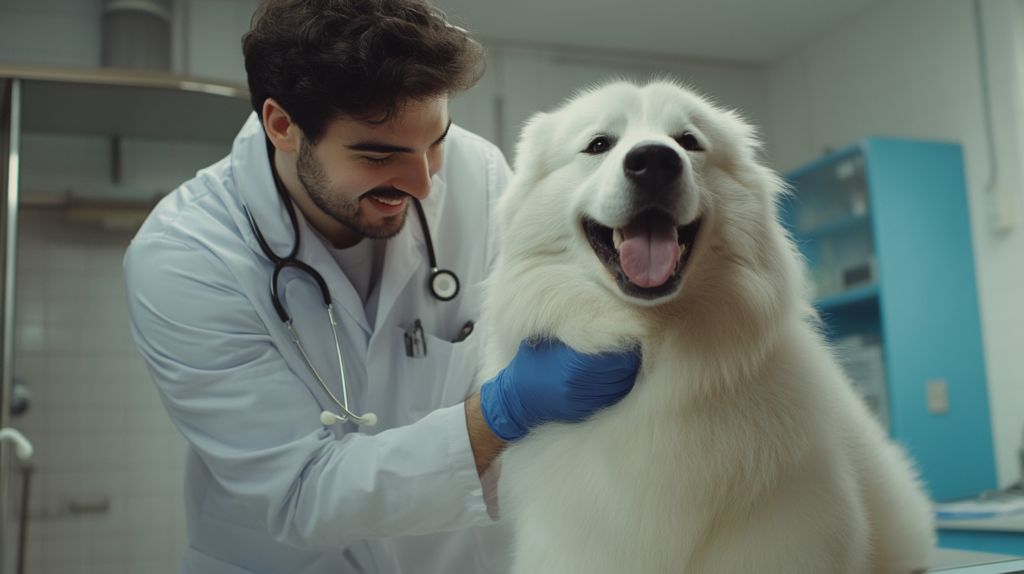
Essential Care Practices for a Happy and Healthy Akbash Dog
Ensuring your Akbash dog thrives involves understanding their unique nutritional needs. This breed, known for its size and activity level, requires a balanced diet tailored to support robust health.
Nutritional Guidelines
- High-Quality Protein: Look for dog food that lists meat sources as the primary ingredient. Protein supports muscle maintenance and overall vitality.
- Healthy Fats: Incorporate healthy fats, such as omega-3 and omega-6 fatty acids. These promote a shiny coat and good skin health.
- Fiber-Rich Carbohydrates: Whole grains or vegetables can provide the necessary energy without leading to excessive weight gain.
Portion Control
Due to their size, Akbash dogs may be prone to obesity. Monitor portion sizes based on their weight, age, and activity level.
Hydration
Always provide access to fresh water. Proper hydration is essential for digestion and overall well-being.
Treats and Training
Limit treats to prevent overfeeding. Opt for healthy options like carrots or apples as training rewards.
By focusing on these essential care practices, you can significantly contribute to the health and happiness of your Akbash dog, paving the way for a long and fulfilling life together.
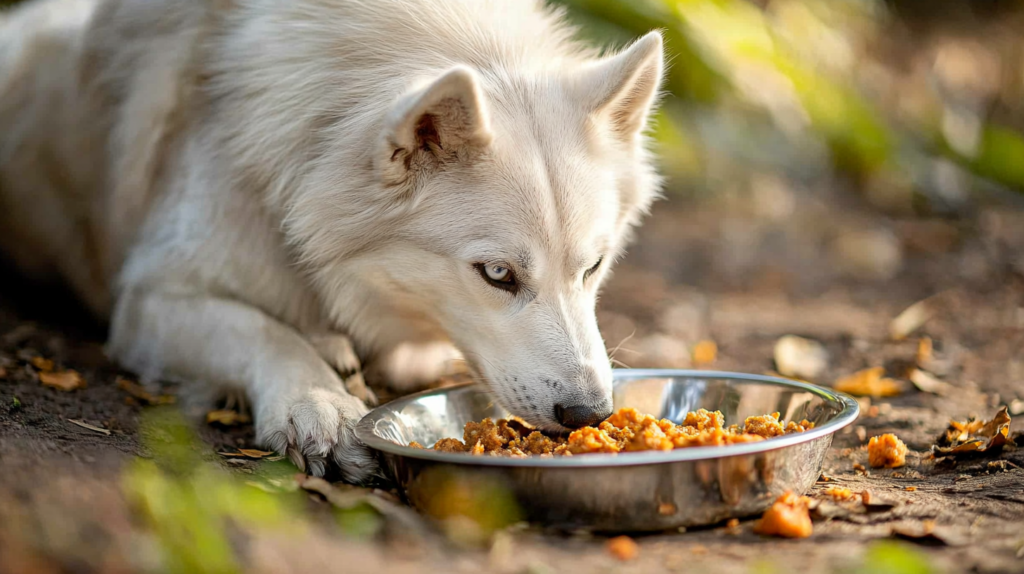
Conclusion
Welcoming an Akbash dog into your life means embracing a unique and majestic companion. These loyal protectors offer not only love but also a significant responsibility for their health and well-being.
Consider these key aspects of Akbash Dog Health:
- Be Proactive: Regular veterinary check-ups play a critical role in early detection of potential health issues.
- Stay Informed: Familiarize yourself with common breed-specific conditions, such as hip dysplasia and hypothyroidism.
- Nurture Their Needs: Proper nutrition, exercise, and grooming contribute immensely to their quality of life.
By prioritizing health management practices, you create a harmonious environment for your Akbash dog to thrive. Enjoy the charming quirks, protective instincts, and gentle nature that make this breed so special.
With adequate care, training, and love, you will ensure your Akbash dog leads a fulfilling life filled with joy and companionship. Embrace the journey of pet ownership — it’s a rewarding adventure that celebrates the incredible bond between humans and their furry friends!
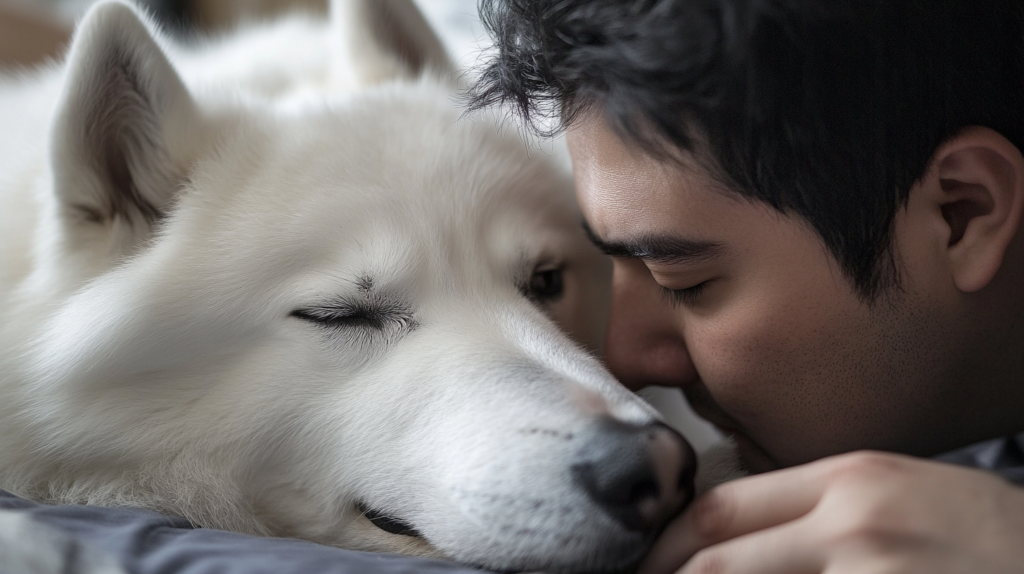
FAQs (Frequently Asked Questions)
What is the average lifespan of an Akbash dog?
The average lifespan of Akbash dogs is between 10 to 12 years. Factors such as genetics and proper care can influence their longevity.
What are common health problems faced by Akbash dogs?
Common health issues in Akbash dogs include hip dysplasia, hypothyroidism, and bloat (gastric torsion). Early recognition and management of these conditions are crucial for maintaining their quality of life.
How can I recognize hip dysplasia in my Akbash dog?
Hip dysplasia can be recognized by symptoms such as difficulty in rising, reluctance to exercise, and noticeable changes in gait. If you observe these signs, it is important to seek a veterinary diagnosis.
What does hypothyroidism mean for my Akbash dog’s health?
Hypothyroidism is a hormonal imbalance that can affect your Akbash dog’s overall health. Signs to watch for include weight gain, lethargy, and changes in coat quality. Early detection is key to managing this condition.
What steps can I take to prevent bloat in my Akbash dog?
To prevent bloat, avoid feeding your Akbash large meals at once, limit vigorous exercise around meal times, and consider feeding smaller, more frequent meals. Be vigilant for symptoms like restlessness or a swollen abdomen that require immediate veterinary attention.
Why are regular veterinary check-ups important for Akbash dogs?
Regular veterinary check-ups are essential for early detection of potential health issues. These check-ups help monitor your dog’s overall health and allow for timely interventions that can enhance their quality of life.

